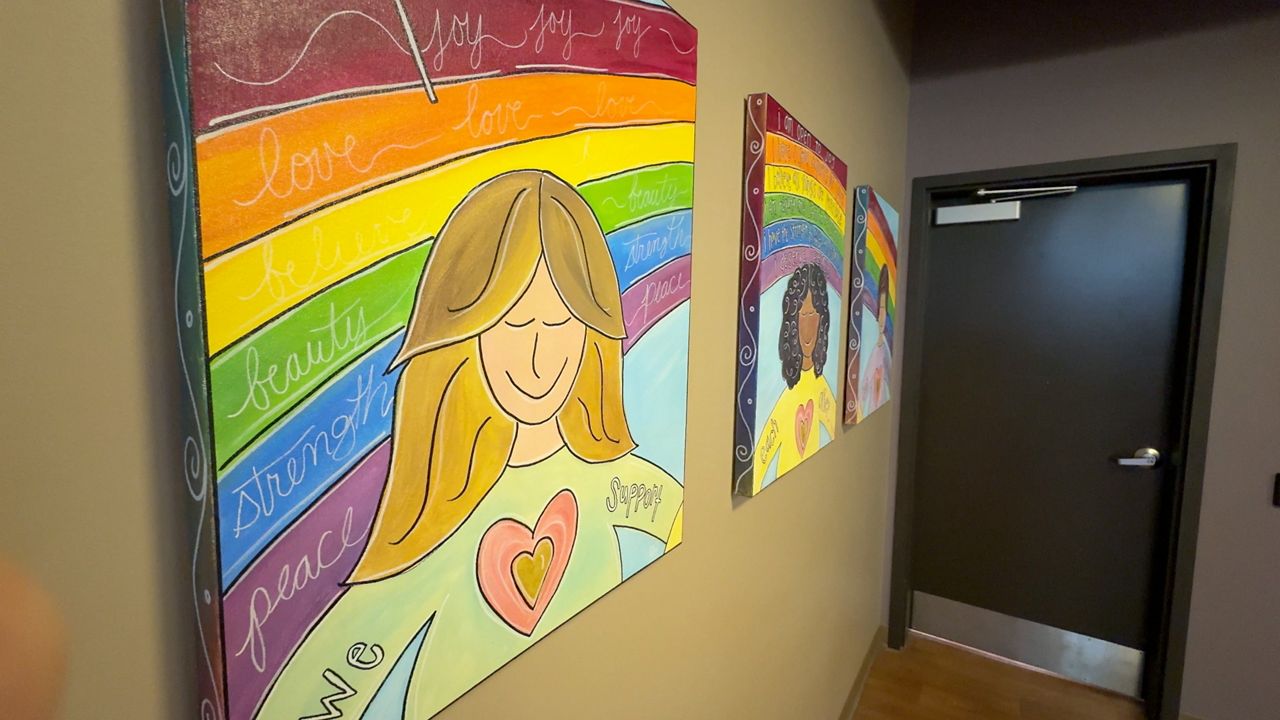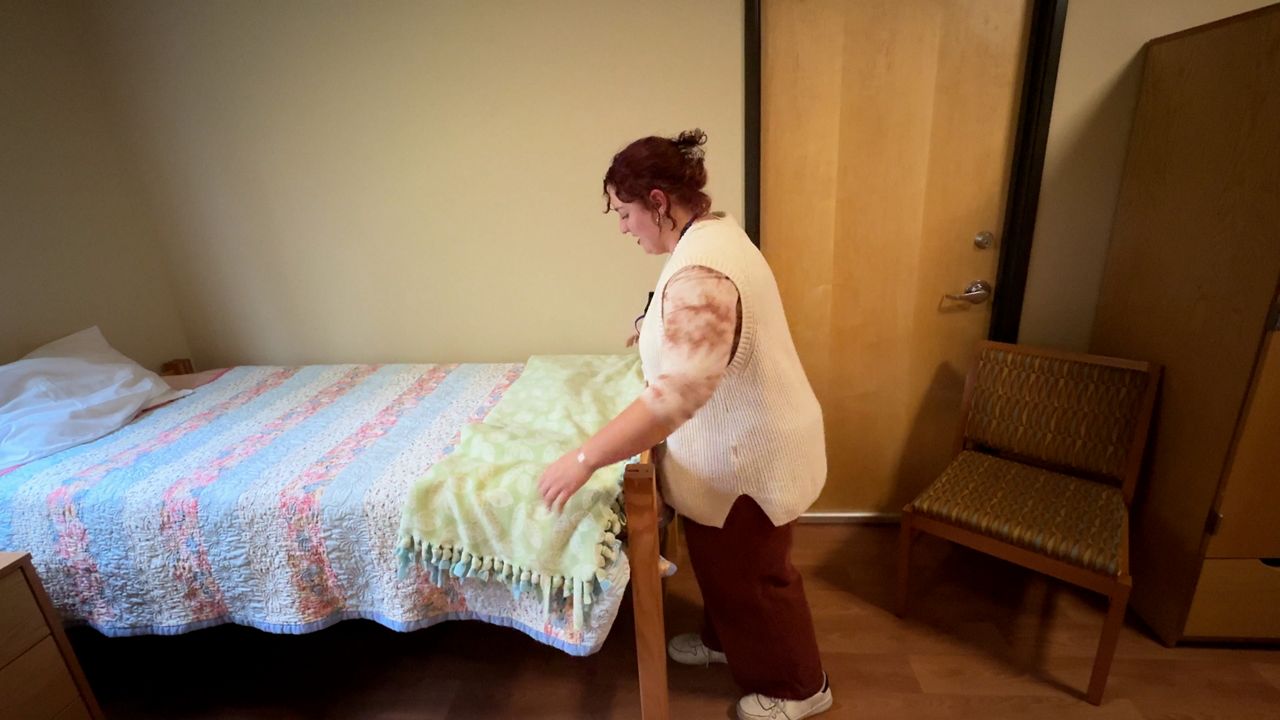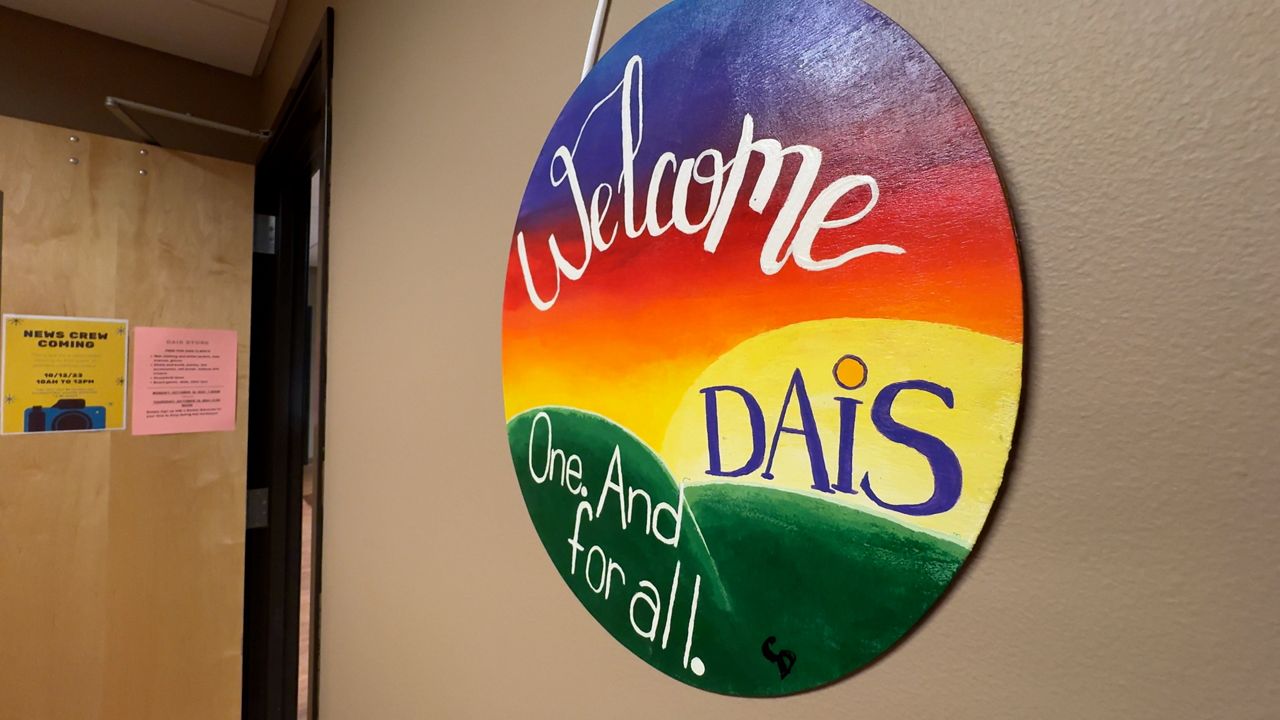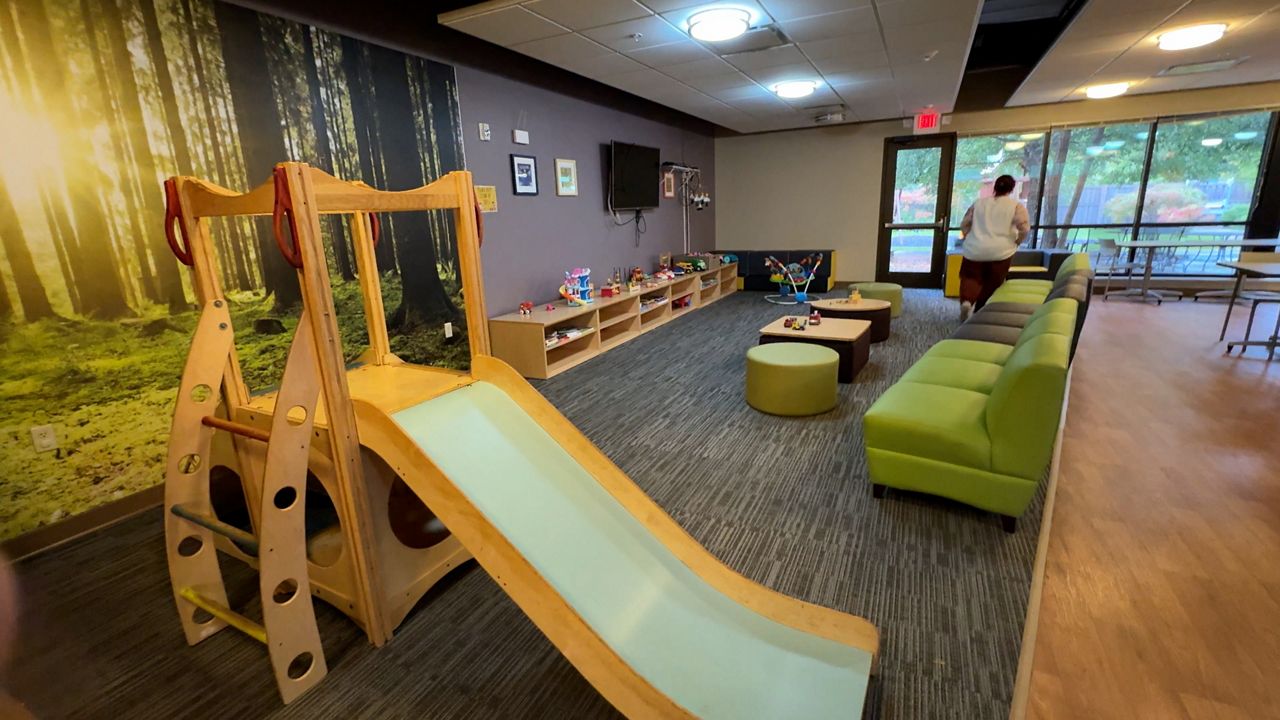This article discusses domestic violence. If you or someone you know has been assaulted, you can call the National Domestic Violence Hotline at 800-799-7233 for free, 24/7 support.
MADISON, Wis. — Helping families escape domestic violence is an issue that hits close to home for Karen Larson.
She’s the parent and child youth advocacy program manager at Domestic Abuse Intervention Services (DAIS).
“I had these two half brothers who had witnessed domestic violence and a mom who had experienced domestic violence,” said Larson.

As a child, Larson had no idea her mother was a domestic violence survivor.
“When I got to become a teenager, she started telling me little bits and pieces of what had happened and I could not believe someone did that to my mom,” said Larson.
That inspired Larson to learn as much as she could about the issue.
Decades later, she is still dedicating her life to helping men, women and children escape that vicious cycle of abuse.

“It opened the world up to me, finding out about all of the dynamics and I decided this is what I want to do with my life,” said Larson.
Larson’s mom was struggling with domestic violence during the 60s. Larson said it was a time when there were limited resources for those looking to escape dangerous situations.
“There were no shelters and so just knowing the struggle she went through made me have a mission to always want services for people,” said Larson.

DAIS offers shelter for men, women and children.
Shelter lead Annalee Kaiser said people are allowed to stay in the shelter for up to 60 days.
“People come and stay here who are in those relationships as a safe place, we’re one of the few shelters here in Madison and I love our shelter for multiple reasons,” said Kaiser.
Domestic violence survivors are left struggling with post-traumatic stress disorder, depression, anxiety and can even develop addictions to drugs and alcohol.
Kaiser said those 60 days that are spent in the shelter are crucial to the recovery process because it allows survivors to get out of fight-or-flight mode and start thinking about the future.
“Kind of going with the next steps forward to whether that looks like helping them find employment, housing, any kind of resources, that is what we are here for,” said Kaiser.

While DAIS has had many success stories, Kaiser said they often see the same families over and over again.
“There are times where we do have repeats for sure. The statistic is it takes 10 times before someone can completely leave,” said Kaiser.
According to the most recent Domestic Violence Homicide Report, 96 Wisconsin residents lost their lives to domestic violence in 2022. That is an increase from 80 lives that were lost in 2021.
Larson said it is important to know how to spot domestic violence and where to report it because one phone call could save a life.
“If you know someone and they just start to be withdrawn and their partner doesn’t want them around friends and family that is a sign,” said Larson. “That is part of the dynamic of power and control is isolating people from their support systems.”
According to the National Domestic Violence Hotline, these are some other signs of an abusive relationship:
- Telling you that you never do anything right
- Showing extreme jealousy of your friends or time spent away from them
- Preventing or discouraging you from spending time with others, particularly friends, family members, or peers
- Insulting, demeaning, or shaming you, especially in front of other people
- Preventing you from making your own decisions, including about working or attending school
- Controlling finances in the household without discussion, such as taking your money or refusing to provide money for necessary expenses
- Pressuring you to have sex or perform sexual acts you’re not comfortable with
If you or someone you know is in an abusive relationship, you can call the National Domestic Violence Hotline at 1-800-799-7233. You can also text “START” to 88788.
DAIS can be contacted at 608-251-4445 or you can text at (608) 420-4638.



